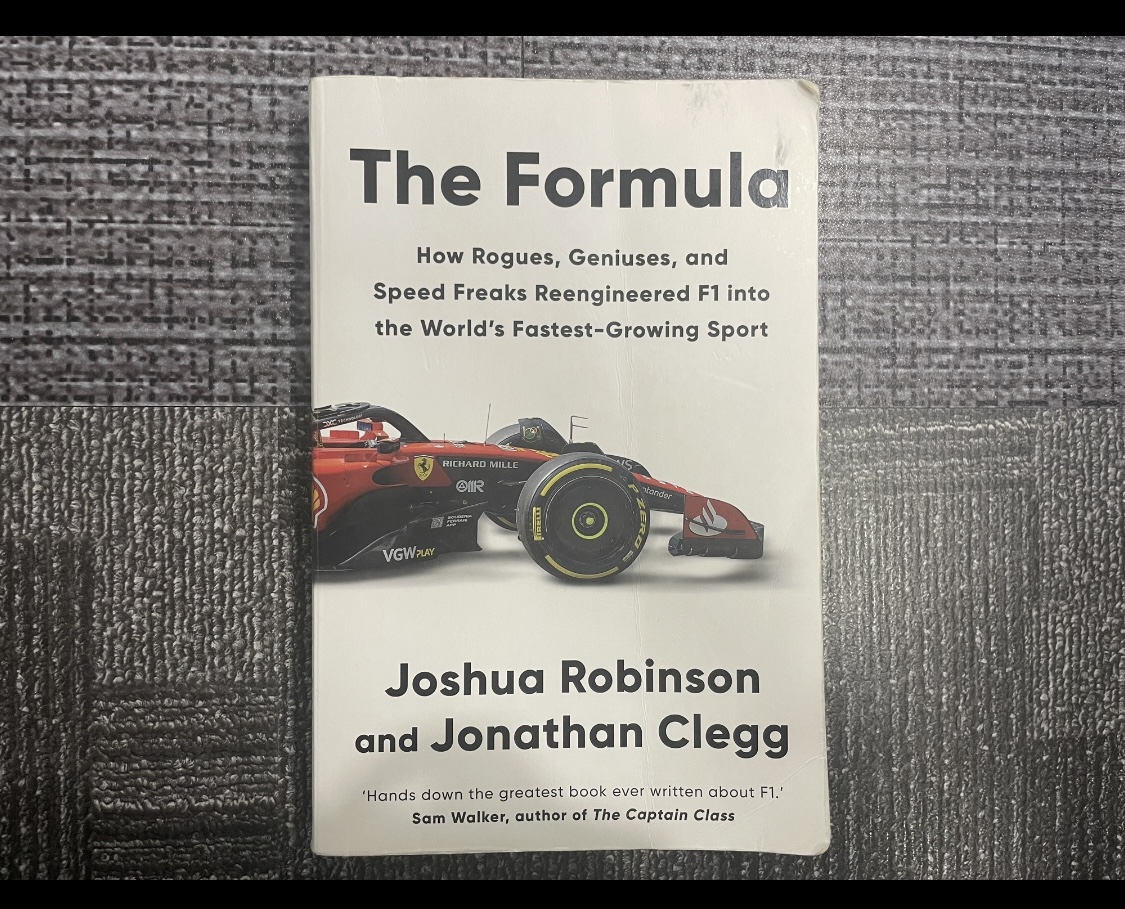
This year F1 celebrates its 75th anniversary.
Before the new season begins, I would like to recommend a book, The Formula. Unfortunately, there is no Chinese translation of this book yet, so let's call it The Formula. After I got it, I habitually flipped through a few pages when writing about F1-related topics, and often felt like I was "saved".
Recently, because Lotus took back the "Lotus" trademark and changed its name to "Lotus Sports Car", I opened this book again.

If you want to understand the history of F1 from the beginning, the Lotus team and its founder Chapman are names that cannot be avoided.
From the time Chapman borrowed 25 pounds from his girlfriend to found Lotus until his death, Chapman's life revolved around two things. The first thing is well known to everyone, that is racing. In the 1950s, Chapman projected all his incomprehensible car-making ideas on the Lotus team, and the Type series that became popular later almost laid the foundation for the prototype of modern F1 racing.
Another thing is to find money. The first car body advertisement of F1 was the tobacco sponsorship found by Chapman. In 1968, F1 officials allowed the team to display the name of the sponsor on the body for the first time. Lotus Cars did not hesitate to abandon the British Racing Green and switched to the red, white and gold paint with "Gold Leaf Tobacco" printed on it. ("Formula") Gold Leaf is a brand of Imperial Tobacco. It is reported that Imperial Tobacco invested 85,000 pounds a year in sponsorship fees to the Lotus team. This deal kicked off the prelude to F1's uninterrupted cooperation with the tobacco industry for 40 years. Tobacco brands such as Black John cigarettes, Marlboro, Rothmans, Camel, etc. have become part of this sport, just like tires and fire-resistant racing suits. ("Formula")
Tobacco paint was popular in F1 for a while, but gradually withdrew from the F1 stage due to a series of tobacco advertising bans issued by the EU and the World Health Organization. But in fact, tobacco companies have not completely disappeared, they are just not so blatant. They may be exposed in a slogan such as "A Better Tomorrow" (the slogan of British American Tobacco) or a convenience store logo such as "7-ELEVEN" (one of the sales channels of British American Tobacco).
"Chapman and Team Lotus" is just one of the side stories you need to unlock to enter the vast racing empire of F1 (if you are a new F1 fan trying to watch a race, or just watch the race intermittently like me).
In the book "Formula", we can clearly see how more than 70 years of F1 history is filtered through the talents of Joshua Robinson and Jonathan Clegg into a racing story with interlocking plots. This is one of the pleasures of reading the book "Formula".
About five years ago, I started watching F1. At that time, my friends who had been watching F1 since junior high school no longer watched F1. They would just shrug and tell you "it was better in the past". Now, it's my turn to say this. F1 is becoming less and less like F1, although it is still the pinnacle of motorsports, and F1 cars are still the epitome of the most cutting-edge technology in the automotive industry. Unconsciously, F1 has changed from a motorsports created by a group of petrol heads for another group of petrol heads to a content manufacturing factory unique to the 21st century.
The desire for competition created F1, but now the competition is no longer an end, but a means. Some people will watch "Drive" (Netflix's F1 spin-off) and like the posts of their favorite drivers, but they may never be willing to spend two hours sitting in front of the TV to watch an F1 race on the weekend.
F1 has no problem with this. So it's entirely possible for someone to call themselves an F1 superfan without ever watching a single race. Is this the future of sports fandom? (Formula)
…The most confusing thing is, what are these new fans attracted to? Is it F1 itself, or the frosting attached to the F1 shell? (Formula)
Who made F1 what we know today? Joshua Robinson and Jonathan Clegg give their answer in "Formula". If you want to know, I think you should buy it yourself. "Formula" is the third book co-authored by the two authors. The first two are "Messi vs. Ronaldo" and "Club". As you can see from the titles, they are all related to football. Maybe for this reason, Joshua Robinson and Jonathan Clegg can't help but compare F1 with football. As it happens, both F1 and modern football originated in the UK. Using one sport to explain another sport is also a different feeling when reading this book.
In short, I highly recommend Formula, which, like Crash Nissan, helped me pass the boring flight time. I always feel very, very happy when I read these words. Reading Formula will not make you know more about the Ferrari car on the cover, but you will definitely believe the book review on the cover, "This is the best book about F1 ever." Like Sam Walker, I have such confidence.